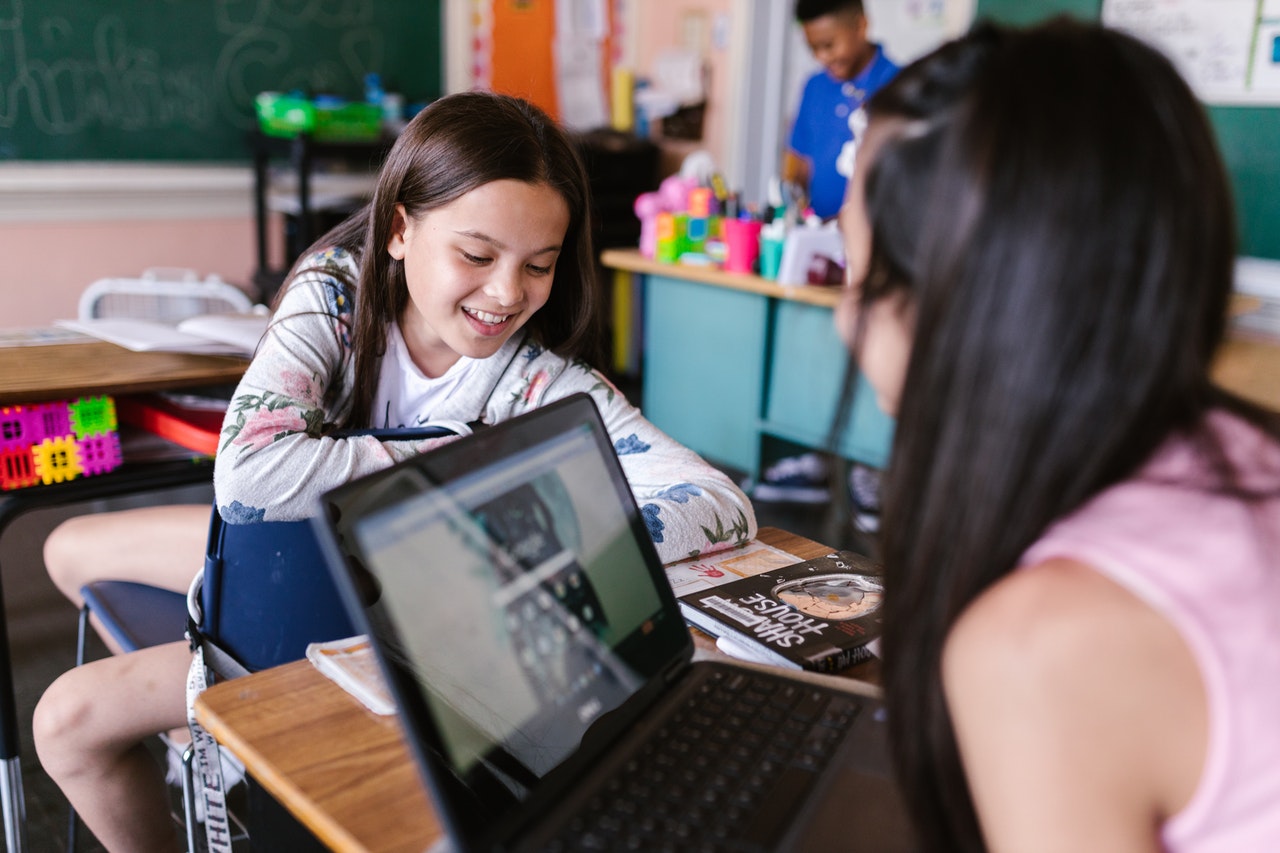Before Their Online World Widens and Their Supervision Decreases: Why Early Digital Education is Important

Digital education in elementary school is a window of opportunity for prevention and community involvement. It is a time when students are open and interested, and adults are looking for tools to support modern learners who are digital natives.
The move from fifth grade into middle school is an especially critical period of transition when access to digital media increases while adult supervision decreases. Students are expected to produce more digital content for academic and social purposes but lack the tools they need to stand up to social cruelty and become responsible and ethical virtual citizens.
Developmentally, it is the time students are most concerned about peer acceptance and prone to peer pressure and risk taking. In the digital age much of this occurs in their online communities.
Our non-profit organization, My Digital TAT2, works directly with elementary students as well as with teachers and parents who are looking for strategies to mentor youth to make healthy and safe choices online.

We are always excited to share what we have learned by working with over 30,000 young people. When we enter the elementary classroom we are greeted by students excited to share what they love most about their online lives. Successful student dialog is rooted in social-emotional learning and incorporates relevant topics and concerns for each age of development. The students can’t wait to talk about the games they play, the videos they watch, and the influencers they follow.
At all grade levels, we encourage students to teach an adult what they learned. We have seen that when children feel empowered to “teach” adults, it reinforces what they have learned and encourages ongoing conversation with their caregivers.
In Third Grade, discussion topics can focus on being healthy, safe, and kind online. We discuss good digital manners, what is safe to share online, protecting their eyes and bodies from digital overuse, and the importance of getting help from trusted adults.
Ideas for facilitating dialog with Third Graders:
- Watching a video together is an effective way to start a conversation. For example, watching an “Olive and Mabel” video together and asking about their definition of good digital manners.
- This is a great time to talk about privacy, family rules and family values about private information. What information about themselves and their families is private and should not be shared online? More broadly, families can ask “What is safe to share online?”
- Discuss why passwords are important, what makes a strong password and who they should share their passwords with (trusted adults).
This age group is a critical time to engage in conversation with curiosity and openness, to listen first and encourage kids to share what they see and hear. We want children to come to us if they see things online that make them feel uncomfortable or concerned, and the best way to do this is to keep the doors to communication open.
In Fourth Grade, discussion topics can focus on the qualities that make a good friend on and offline, standing up for ourselves and others, and cultivating empathy. Share your own thoughts, values and experiences. Our children learn so much from us when we can talk about our own experiences and struggles with online communication.
Ideas for facilitating dialog with Fourth Graders:
- What does it mean to “step into someone else’s shoes”? Is this harder online or offline and why?
- What happens when you can’t see the person on the other side of the screen?
- Ask them if they have ever seen someone be hurt by online words or actions that were meant to be funny – how did that make them feel?
- Have they ever been hurt by online words and actions?
- Reinforce the importance of slowing down and THINKing before they post, send, text:
– Is it True?
– Is it Helpful?
– Is it Inspiring?
– Is it Necessary?
– Is it Kind?
- Read the book “Wonder” by R.J. Palacio together and discuss the precepts, especially “When given the choice between being right and being kind, choose kind.”
In Fifth Grade, discussion topics can focus on personal power and responsibility online. By this age, many are hearing about or using apps such as Instagram and TikTok. Most are using YouTube, some are creating content and are very interested in social media. Listening to what they see and hear online will encourage them to continue to share their experience with you. The most important thing you can do as they move from elementary to middle school is encourage trust and open communication.
Ideas for facilitating dialog with Fifth Graders:
- Ask about what they are playing, who their influencers are, and what they love about the games they play and the people they follow.
- Set limits and stay consistent.
- Have they ever seen toxic* behavior online?
- Do they think people are more toxic behind a screen? Why?
- Discuss anonymity, what happens when we cannot see the expression on someone’s face, and how people often get bolder when they feel they cannot get caught (including adults!).
- Use real life examples to talk about the power of words to build someone up or take them down, and reiterate how words are more powerful online as they can spread and go viral.
- This is an important time to reinforce positive digital behavior, empathy, and values that are important to you and your family.
With regards to online behavior, apps, and devices: we believe in not banning the tool, but in discussing the behavior that concerns us on digital devices. What is the root of the issue? Is it the language they are using? The behavior they are exhibiting? That they are having a hard time getting offline once they start a game? Reiterate your family values and why the behavior concerns you.
We believe in early intervention and in using a scaffolded approach to digital education before problems arise. Elementary school is the time to begin this conversation not just with students, but with educators, families, and all stakeholders in the lives of children, including health care workers. We have seen that teaching children about their personal power and responsibility and how to think critically about their digital responses and behavior will prepare them to use technology in kind, safe, and mindful ways. The earlier we begin this conversation, the better opportunity we have to build critical thinking skills that support digital resilience.
*common language around the 5th grade students with whom we work.

 Gloria Moskowitz-Sweet
Gloria Moskowitz-Sweet